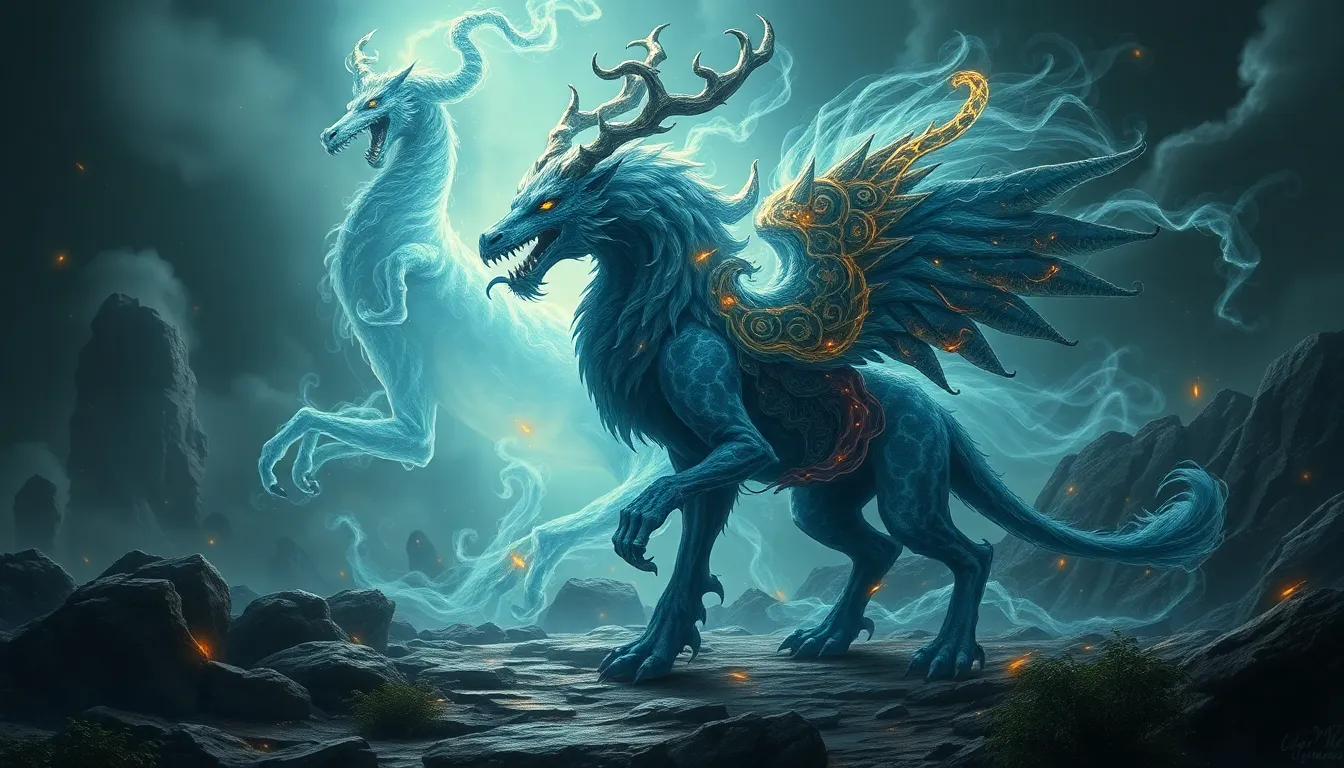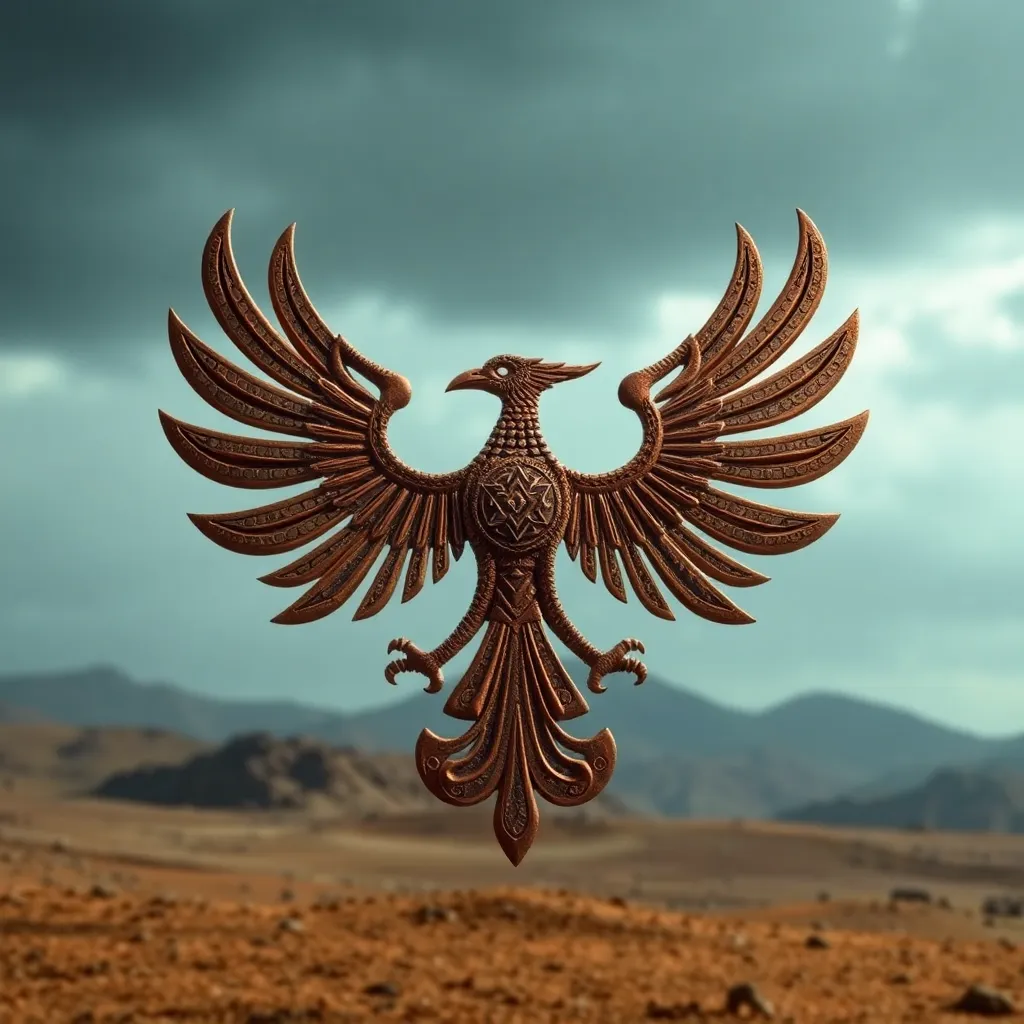The Influence of Polynesian Mythology on Modern Culture
Polynesian mythology, a rich tapestry of stories, beliefs, and traditions, has profoundly influenced modern culture, leaving an indelible mark on literature, film, music, dance, art, design, anthropology, and education.
I. Introduction
Polynesia, a vast expanse of islands scattered across the Pacific Ocean, is home to a vibrant and diverse array of cultures. Polynesian mythology, shared by these cultures, has played a pivotal role in shaping their identities, values, and beliefs. These myths have been passed down through generations, serving as a source of wisdom, inspiration, and cultural continuity.
II. The Significance of Polynesian Mythology in the Pacific Islands
Polynesian myths are not mere stories but an integral part of the fabric of Pacific Island societies. They provide a framework for understanding the world, explaining the origins of the universe, the nature of humanity, and the social order. These myths also serve as moral tales, teaching lessons about courage, loyalty, and respect for the natural world.
III. The Transmission of Polynesian Mythology
Polynesian mythology has been transmitted orally for centuries, passed down from generation to generation through storytelling and chants. In recent times, written records have also played a significant role in preserving and transmitting these myths. Early missionaries and explorers documented Polynesian stories, providing valuable insights into these ancient traditions.
IV. Polynesian Myths in Literature and Film
Polynesian mythology has captured the imagination of writers and filmmakers worldwide. Herman Melville's epic novel "Moby-Dick" draws inspiration from Polynesian myths, particularly the story of the demigod Maui and his quest to capture the sun. James Michener's "Hawaii" weaves Polynesian legends into a historical narrative, exploring the clash of cultures and the enduring power of tradition. Disney's animated film "Moana" celebrates Polynesian culture and mythology, featuring a young heroine who embarks on a perilous journey guided by the demigod Maui.
VI. Polynesian Myths in Art and Design
Polynesian mythology has profoundly influenced Polynesian art and design. Traditional Polynesian tattooing, known as tatau, is an art form that has been practiced for centuries. Tatau designs often incorporate mythological symbols and motifs, representing the wearer's lineage, status, and personal journey. Traditional Hawaiian woodcarving, another important art form, also draws inspiration from Polynesian myths, depicting scenes from legends and capturing the spirit of the islands' rich cultural heritage. In recent times, contemporary Polynesian artists have incorporated mythological themes into their works, creating vibrant and innovative expressions of their cultural identity.
VII. Polynesian Myths in Anthropology
Polynesian mythology provides valuable insights into the social structure, religious beliefs, and cultural identity of Pacific Island societies. These myths reflect the hierarchical nature of Polynesian societies, with chiefs and priests holding positions of authority. They also shed light on the religious beliefs of the Polynesians, including their reverence for nature and their belief in a pantheon of gods and spirits. Additionally, Polynesian myths provide a glimpse into the cultural identity of Pacific Island peoples, highlighting their values, customs, and traditions.
VIII. Polynesian Myths in Education
Polynesian mythology plays a crucial role in education in the Pacific Islands. It serves as a means of preserving cultural heritage and transmitting traditional knowledge to younger generations. By learning about their myths, students gain a deeper understanding of their history, values, and cultural identity. Polynesian myths also promote cultural understanding and foster respect for different cultures. They can help students develop empathy, tolerance, and a broader perspective on the world. Furthermore, Polynesian myths can inspire creativity and imagination, encouraging students to explore their own cultural heritage and express themselves through storytelling, art, and other creative endeavors.
IX. The Challenges and Controversies of Using Polynesian Myths
While Polynesian mythology has had a profound influence on modern culture, its use has also been met with challenges and controversies. Some critics have raised concerns about the cultural appropriation of Polynesian myths by non-Polynesian artists and writers. It is important to approach the use of Polynesian myths with respect and sensitivity, ensuring that it is done in a way that honors and celebrates the culture from which it originates. Additionally, it is crucial to avoid perpetuating stereotypes or misrepresenting Polynesian culture through the use of myths.
X. Conclusion
Polynesian mythology has left an enduring legacy on modern culture, influencing a wide range of creative expressions and academic disciplines. From literature and film to art and design, from anthropology to education, Polynesian myths continue to resonate with people around the world. By embracing the richness and diversity of Polynesian mythology, we can gain a deeper understanding of the human experience and celebrate the cultural heritage of the Pacific Islands.
FAQs
Q: What is the significance of Polynesian mythology?
A: Polynesian mythology provides a framework for understanding the world, explaining the origins of the universe, the nature of humanity, and the social order. It also serves as a source of wisdom, inspiration, and cultural continuity.
Q: How has Polynesian mythology influenced modern culture?
A: Polynesian mythology has influenced literature, film, music, dance, art, design, anthropology, and education. It has inspired writers, filmmakers, artists, and musicians, and has provided valuable insights into the social structure, religious beliefs, and cultural identity of Pacific Island societies.
Q: What are some challenges associated with using Polynesian myths?
A: Some critics have raised concerns about the cultural appropriation of Polynesian myths by non-Polynesian artists and writers. It is important to approach the use of Polynesian myths with respect and sensitivity, ensuring that it is done in a way that honors and celebrates the culture from which it originates.



